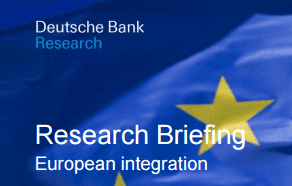
A new Deutsche Bank Research Briefing reviews and analyses the effects of EU free movement, paying particular attention to social security and concerns about “benefit tourism”.
Deutsche Bank drew upon ECAS’ earlier work in its report, referencing ECAS’ recent publication “Fiscal Impact of EU Migrants in Austria, Germany, the Netherlands and the UK“, and drawing upon and agreeing with the main finding that EU immigrants have a positive impact on the finances of these countries.
The Deutsche Bank report finds that there is no evidence of “benefit tourism” as a mass phenomenon within the EU:
“the occasionally reported pessimistic picture of mass migration into the social security systems of partner countries is more or less an illusion at present”
Furthermore, it stresses that limiting free movement would be counterproductive:
“The free movement of persons is rightly considered to be one of the key achievements of the single European market… Further-reaching access barriers for citizens from partner countries…would represent an economically damaging step backwards in the integration process”
The report also suggests that it would be productive to consider
“alternative rules for access for access to social benefits that do not inappropriately hamper the free movement of citizens within the EU“.
Read the full research briefing: Debate on free movement – Does the EU need new rules on social security co-ordination?